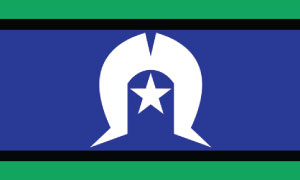This Glossary provides definitions of key terms used throughout the Data Consistency Guide. Definitions of common terms will be made consistent across this Guide, CLASS Documentation, and the Risk Management Guide. If you want to provide feedback or seek clarification about any of the definitions below, please email us.
Aboriginal and Torres Strait Islander Legal Services (ATSILS) are community controlled non-for–profit organisations providing legal assistance services in the areas of criminal, family and civil law in addition to undertaking community legal education, prisoner through-care and law reform and advocacy activities. See the NATSILS website for more info.
Centre is a broad term covering any legal service provider that falls under the umbrella of Community Legal Centres Australia and its members. Centres may be community legal centre, Family Violence Prevention Legal Services or Aboriginal and Torres Strait Islander Legal Services. In this Guide it may also refer to organisations that use CLASS users but are not members.
CLASS is the client management database operated by CLCs Australia. See CLASS Documentation.
Community Education is a Community Projects Service Type that aims to resolve non-legal issues, social welfare, learning outcomes and personal development of people involved in the legal process and experiencing disadvantage. The focus is on addressing related non-legal problems that directly impact upon a person’s ability to access or participate in the justice system, to prevent legal matters escalating. See below for the meaning of “non-legal problems”, and see the service type Community Education.
Community legal centres are independent, non-profit, community-based organisations that provide free and accessible legal and related services to everyday people, including people experiencing discrimination and disadvantage.
Community Legal Education (CLE) can be broadly described as information about the law provided to the general community, community services, community groups, organisations, schools or other agencies. The purpose of CLE is to inform and build individual and community resilience by enhancing awareness and understanding about the law, and how to identify, prevent and deal with problems awareness of the help available from legal and support services. In the Data Consistency Guide, CLE is not of itself a Service Type, rather, the Service Types are CLE Activity and CLE Resources: see Community Legal Education.
Community Projects, also called Services to the Community, is a grouping within the Data Consistency Guide that pulls together all Service Types by a Centre other than one-on-one services provided to an individual. See Groupings and Community Projects.
Court/Tribunal Representation Service is a Service Type defined as where a Centre provides ongoing representation for a matter that has commenced in a court, tribunal or inquiry, where the Centre provides legal representation to the Service user and takes carriage of the matter in an ongoing, representative capacity. See Court/Tribunal Representation Service.
Discrete Services are a grouping of one-off legal or non-legal services provided to Service Users, where the Centre undertakes a clearly-defined activity but does not commit to providing ongoing support once that activity is completed. See Groupings and Discrete Services.
Dispute Resolution Representation Service is a Service Type defined as the ongoing legal representation by a Centre of a Service User in a matter that is proceeding by way of alternative dispute resolution processes. See Dispute Resolution Representation Service.
Duty Lawyer Service is a Service Type defined as legal service/s provided by a duty lawyer or advocate to a client at a court or tribunal. See Duty Lawyer Services.
Facilitated Resolution Process is a Service Type in which a Centre sets up and/or conducts (“facilitates”) activities such as a conference to assist opposing parties to resolve or narrow issues in dispute. A Facilitated Resolution Process is a form of alternative dispute resolution, which seeks to resolve disputes without going to court or tribunal. See Facilitated Representation Service.
Family Violence Prevention Legal Services (FVPLS) are Aboriginal and Torres Strait Islander community-controlled organisations providing legal assistance, casework, counselling and court support to Aboriginal and Torres Strait Islander adults and children who are victim/survivors of family violence. Legal services are provided in matters related to family violence, victims of crime compensation, family law, and child protection. FVPLSs also provide community legal education and early intervention and prevention. See https://www.nationalfvpls.org/What-We-Do.php.
Information Service is a Service Type defined as the provision of information to a Service User in response to an enquiry about the law, legal systems and processes; and legal and other support services to assist in the resolution of legal and related problems. See Information Services.
Law and Legal Service Reform is a Community Projects Service Type which include activities undertaken to change the law and legal process, or to improve the provision of legal assistance services. These activities often seek to improve equitable access to, and the effectiveness of, the justice system for the benefit of particular disadvantaged groups within the community and the Australian community as a whole. See Law and Legal Service Reform.
Legal Advice is the provision of fact-specific legal advice to a Service User in response to a request for assistance to resolve specific legal problems. See Legal Advice.
Legal Task is a Service Type where a Centre undertakes a discrete, clearly-defined, one-off piece of legal work (an identifiable deliverable) to assist a Service User in their own efforts to resolve a legal problem, with no commitment to support the Service User beyond the completion of that piece of work. The two main types of work in a Legal Task are reviewing or preparing particular documents for a Service User to use in their legal proceedings; or a limited instance of interacting with a third party to help progress a Service User’s legal matter. See Legal Task.
CLCs Australia, formerly the National Association of Community Legal Centres, is the national peak body for community legal centres. CLCs Australia developed this Data Consistency Guide and operates CLASS.
Non-legal problems, for the purposes of this Guide, describes issues experienced by a Service User that cannot be resolved by asserting or defending the person’s legal rights through legal processes – Non-Legal Support Service – Discrete and Non-Legal Support Service – Ongoing.
Non-Legal Support Service is a non-legal service provided by a Centre directly to a Service User to assist and support them to resolve specific, non-legal problems. For the meaning of “non-legal problems”, see above. There are two Non-Legal Support Service Types – Non-Legal Support Service – Discrete and Non-Legal Support Service – Ongoing.
Other Representation Service is a Service Type in which a Centre takes carriage of a legal matter in an ongoing, representative capacity, but where the service does not fit within the definition of a Court/Tribunal Representation Service or a Dispute Representation Resolution Service. In other words, it is representing a Service User in a legal dispute in which there are no court, tribunal or dispute resolution proceedings. See Other Representation Service.
Ongoing Legal Support Services is a new Service Type, to be made available in CLASS in the future, in which a Centre makes an up-front commitment to a Service User to provide them with ongoing support in their own efforts to resolve a legal matter. The Centre does not take carriage of the legal matter or represent the Service User in any legal proceedings. See Ongoing Legal Support Service.
Service Type is a data item that describes particular interactions between a Centre and people/groups/organisations. For this Guide, Service Types are grouped into Services for the Individual and Services for the Community (Community Projects). The original Service Types used in this Data Consistency Guide, and built into CLASS, were drawn from the Data Standards Manual. See Groupings.
Service User is a person or organisation who receives services from a Centre. It is a broader term than “client” because it also covers a person who receives an Information or Referral service, whose name or other identifying details are not captured and therefore who may not be described as having a solicitor / client (or other form of professional / client) relationship.
Stakeholder Engagement is a Community Projects Service Type used to describe the engagement by the Centre with other agencies, groups or key individuals who affect or could be affected by the Centre’s work. See Stakeholder Engagement.


Community Legal Centres Australia acknowledges the traditional owners of the lands across Australia and particularly acknowledges the Gadigal people of the Eora Nation, traditional owners of the land on which the Community Legal Centres Australia office is situated. We pay deep respect to Elders past, present and emerging.

Community Legal Centres Australia is a proudly inclusive organisation and an ally of the LGBTIQ+ community and the movement toward equality.
ABN 67 757 001 303 ACN 163 101 737
Disclaimer | Privacy Policy
© Community Legal Centres Australia 2022 | Designed by DropIn Solutions